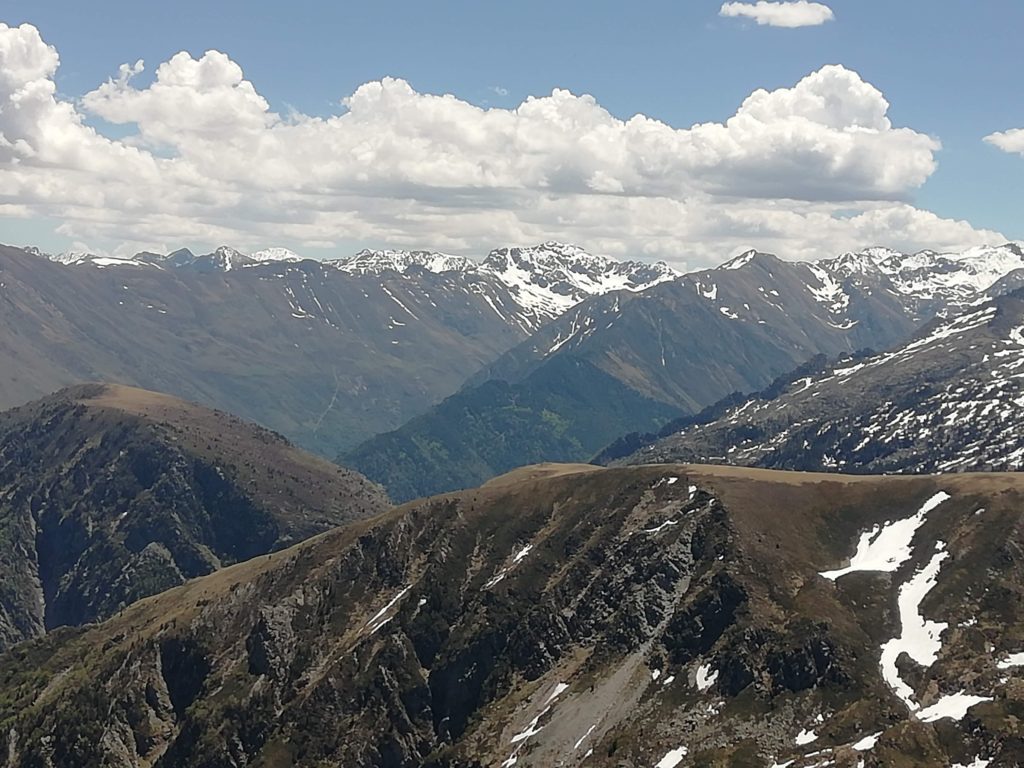I am in Lavelanet, the town down the road where the white tops of the Pyrenees sparkle in the near distance. I sit in the kinesiology clinic, lifting my weighted leg over and over, strengthening the places that had been weakened by the surgery for my broken femur, my mind opening out into the void as I listen to the music of the French conversations floating around me.
M. Paradis banters and jokes with all his clients as he juggles the needs of the six to ten people present in his modern, new clinic at any given time, striding back and forth, manipulating the arm of one old man wincing in a chair, gently calling out directions to a young woman, telling a long, funny story to a man on the stationary bike, heating up the warming compound he applies to aching joints, calling out, “Ca va, Madame Lyons?” “Oui, ca va!” I follow his directions. Sometimes he peppers his French with excellent English, corrects my French unabashedly and jabs me mildly about the leadership of the US.
In such a setting, I understand about half of the conversations drifting into my ears over the cubicle walls or from the open gym. The vocabulary becomes local, flavored with Occitane, fast- paced, colloquial. I begin to feel like a child who hasn’t studied enough at school, ashamed, small. When M. Paradis speaks with the old men and women who come in taxis from the Residence down the road, with their wheelchairs or their canes, the conversations become quickly obscure as he flows into the flattened accent he grew up with, the particular way of kidding and the obscure usage of the Ariege.
As I stretch out on a therapy bench in a cubicle, lifting my weighted leg over and over, counting to twenty each time I lift, waiting for M. Paradis to say, “Madame Lyons, vous pouvez terminer quand vous voulez!” a bit of conversation becomes distinct.
The old man with his canes is making his way from the recumbent stationary bike in the big room, following M. Paradis’ direction to move to “un box”. M. Paradis is saying, “No not that cubicle. Here, over here, there’s one with an ocean view.” The old man, slowly making his way responds, “Will I be able to hear the waves washing in and out? Will I smell the salt air? Will I be able to go out for a swim in the morning?”
In that moment, I experience the opening of all minds into one. The way in which there is no barrier to the flow of imagination. We imagine each other. We create the languages that express those thoughts drifting through like clouds. We create each other. Time and culture have no meaning. There is only the expanse of mind that encompasses everything.

